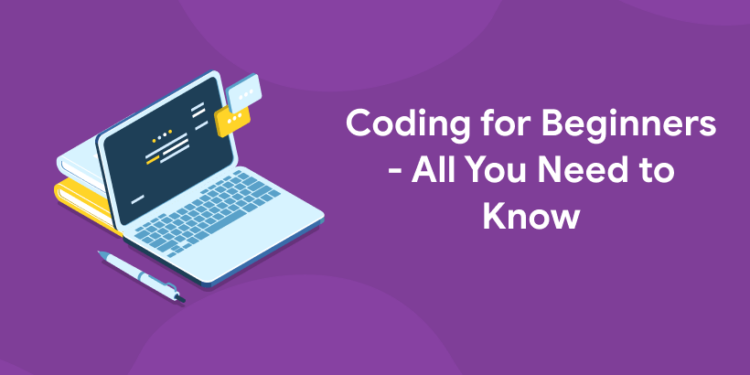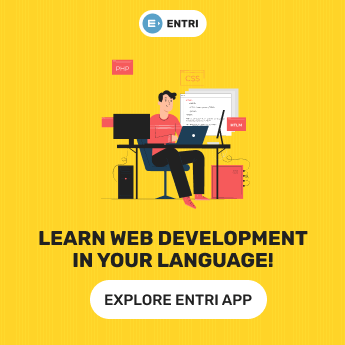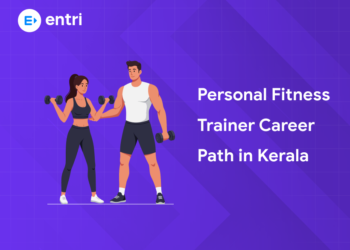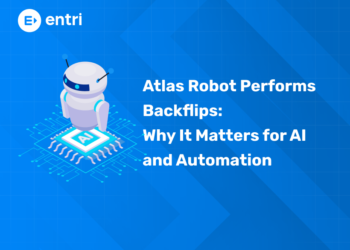Table of Contents
The ability to build computer software, applications and websites is made possible through coding. Code is used to create your browser, your operating system, your phone’s apps, Facebook, and this website. You have probably heard about the popularity of learning to code is gaining these years. But, exactly, what is coding?
Learn to code from industry experts! Enroll here
What is Coding?
Simply defined, coding is the process of feeding our instructions into a computer in a language that the machine comprehends so that it can carry out the request and complete the work. Programming is a collection of codes organised in a logical order that leads to the accomplishment of a task. The program is made up of a succession of smaller tasks that instruct your smartphone to complete the aforementioned task. Each smaller task is expressed in code, which is a computer language, and coding is all about that.
Coding for Beginners and Best Ways to Learn How to Code in 2025
1: Which of the following data structures allows elements to be added and removed in a Last-In, First-Out (LIFO) order?
Follow the steps given below for an easier stepping into the world of coding.
- Now, before you even consider enrolling in classes or starting to watch YouTube videos on coding, you need to ask yourself why you want to learn to code in the first place. Sit down and consider what you intend to gain from it, why coding is a talent you want to acquire, and how much time and capital you can allocate to it. What kind of skills do you wish to have at the end? Do you aim to be employed as a web developer? Maybe you’d rather be able to create mobile apps or work in software engineering. You’ll want to think about this carefully because it will have a big impact on the languages you learn. What inspires you to study coding? Is learning to code just something you want to do in your spare time because it fascinates you? Is programming something you’d like to pursue as a job in the future? There’s certainly little use in enrolling in an intensive course if you just have a handful of hours each week to dedicate to learning how to code. Similarly, if you want to enrol in an intense course with assistance, you must be willing to pay for it. Identify and write down your coding objectives, then keep them in a secure place. These will serve as the foundation for your progression from novice to master coder.
- Different forms of programming need various abilities. If you want to learn how to code a website, for example, you should study HTML, CSS, Java, and JavaScript. Similarly, mobile app development necessitates the use of Java (for Android) or Swift (for iOS) (for iOS). It is critical to select the appropriate language.
- Now that you’ve chosen the languages that will help you learn how to code, it’s time to consider the best methods for learning them. A few of them are given below.
| Online coding courses | Textbooks | YouTube videos |
| One of the greatest methods to gain a feel for a new programming language is to take an online coding course. When done correctly, they will teach you some of a language’s basic syntax and how to utilise it. They’re generally taught in a fun, engaging way, and many of them let you learn by writing code straight in your browser. Most of these courses are available for free or at a very minimal cost, and some even provide certificates. | Textbooks are a fantastic resource that every learner should make use of. They include all of a language’s syntax and rules, letting you check things up when you’re unclear on how to proceed with your code.
|
Online videos and video tutorials are excellent resources for understanding difficult ideas. They should be used in conjunction with an online course or another means of teaching beginners how to code.
|
- Although many online courses allow you to write code in a code editor directly in your browser, you must understand that this is not how the real world works. You’ll need to start putting your code straight into a code editor once you finish your online course, so it’s a good idea to start practising now. The code editors for most programming languages are obtainable by downloading. They often include interactive development environments (IDEs) that assist you in writing clean, error-free code. If you like, simple languages like HTML and CSS may be typed directly into a text document.
- You’ll need to begin creating your programmes and projects after you have a basic grasp of your chosen language. Although this may be a long way off today, you will be astonished at how quickly you develop once you begin to study. The language you learn will determine the sort of programme or project you begin. For example, if you’re learning how to develop a website using HTML/CSS, you can decide to get started constructing your website right away.
- Join an online community. It may be incredibly tough for beginners to navigate the complexities of learning how to code on their own. There will be instances when you may need aid. Let’s imagine you’re studying a language and you’ve come across a bit of syntax that you’re having trouble understanding. Joining an online chat board or coding forum can provide you with access to people who can answer your queries and assist you in overcoming any obstacles.
- It’s time to go further into a programming language after you have a strong understanding of how to code in it. Unpacking someone else’s code is one of the most effective methods to continue learning and reinforce your programming language skills. Work your way through the code, making sure you know what each line does. If necessary, leave a remark. Change anything you observe that you believe could be done more efficiently or that you believe might be improved. After you’ve completed it, save and re-upload your updated code so that others may comment on it.
- Programming languages are similar to other languages in several ways. If you want to become fluent in them, you’ll need to practise often, and if you don’t, you’ll forget stuff. As a result, you must continue to learn new things every day. Don’t fall into the trap of always employing the same code patterns and syntax. Instead, constantly push yourself to acquire new techniques and enhance your technique. Make it a habit to learn something new every single day. This might be a new syntax, a new technique to write a line of code or just a more efficient approach to debugging a code.
Build Better, Together. 🛠️ Join the Entri Coding Community!
Beyond syntax, there’s strategy. 🚀 Join our subreddit for: Exclusive Coding Roadmaps 📍,Project Case Studies 📂 ,Interview Prep Tips 💡and more
👉 Join our Reddit communityIs Coding Easy for Beginners?
Coding is not hard to study. Learning to code, like learning any other skill, takes time and effort. The level of complexity will vary depending on the programming language and the type of software you want to create. The perceived difficulty is one of the most prominent reasons why individuals don’t want to learn how to code. Some people begin studying but abandon it halfway through because they become trapped or find it too tough to comprehend. You might be wondering if coding is difficult to learn and whether the effort is worthwhile. One thing is certain: coding is not difficult, but it is not easy either. You can become an expert at it with the correct mentality, determination, and learning assistance.
Coding Languages for Beginners
Below, we’ve included some of the most popular languages for beginners.
- Java- In the present world, Java is undoubtedly the king of programming languages. It is widely used, adaptable, and can be used to create Android apps and also for back-end web development. For those beginning to code, Java is a very functional language. It’s easy to learn, reads like English, and there’s enough employment for entry-level Java programmers out there.
- Python- Python is the queen of programming languages if Java is the king. It’s also quite adaptable, with several applications. Python is used by many academics and researchers to construct data analysis applications that aid their study. It is also responsible for the development of new technologies such as artificial intelligence and machine learning. It is simple to learn and is the most often taught language in schools. As a result, it’s ideal for newcomers.
- Ruby- Ruby is a popular language for full-stack web development. The Ruby on Rails framework provides for seamless integration of both front-end and back-end components of a new website. If you want to be a web developer, you need to understand at least the fundamentals of Ruby. This way, even if you don’t have to deal with it directly, you’ll be familiar with it.
- Solidity- Solidity is one of the greatest programming languages to learn if you’re interested in cryptocurrency and blockchain development. Solidity is the principal language for smart contract development on the Ethereum blockchain, even though it is not well recognised or widely used.
- HTML- a coder should study HTML if they want to be employed in front-end web development. HTML (or Hypertext Markup Language) is a basic language for marking up text so that computers can comprehend it. Most often HTML is the go-to language for beginners in coding.
- CSS- To style and format material on webpages, CSS is almost solely used in conjunction with HTML. It allows you to modify the colour and size of elements, as well as the arrangement of items on a webpage and the overall style of the page. CSS, like HTML, is required if you want to work as a front-end web developer. It’s a good idea to study HTML and CSS at the same time.
- JavaScript- JavaScript, like Java and Python, is a highly flexible and widely used programming language. Although JavaScript was originally designed as a front-end web development language for creating interactive features, it is now being utilised for a variety of additional purposes, including back-end web development. We recommend learning JavaScript if you want to become a competent front-end or back-end, web developer.
- PHP- PHP is a server-side scripting language that is used to create online applications. It is free and open-source. It enables you to include dynamic data on your website. PHP is exceptional for database access, permitting you to gain and save vital data. You may create a whole e-commerce website if you understand PHP.
- GO- Go is a free and open-source programming language that makes it simple to create high-performance software that is dependable, simple, and efficient. Memory safety, garbage collection, structural type, and easier concurrency/multithreading distinguish Go from C. It’s utilised for a variety of things, including cloud and server-side apps.
- Objective-C and Swift- Both of these programming languages are primarily used to create programmes for Apple’s macOS and iOS platforms. If you want to create iOS mobile apps, you need to master one of these languages. Because Objective C is an ancient programming language, it is quite stable. It’s a mix of C and Smalltalk. Swift, on the other hand, is a fast-growing language with high performance. It’s also simple to read and maintain, which is why inexperienced iOS programmers should use it.
- Kotlin- Kotlin is a newer language that offers several benefits over Java. Although Kotlin is simpler to learn, it lacks the community that Java does. They’re both used to create Android apps, among other things.
- SQL- SQL is a programming language for managing data in relational database management systems. Its main purpose is to communicate with a database. SQL is not difficult to learn, and it will benefit any programmer.
Interested in Android app development? Enroll here to master app development!
Coding Books for Beginners
A few beginner-level coding books are discussed below.
| No. | Author | Name of the book |
| 1 | Cory Althoff | The Self-Taught Programmer: The Definitive Guide to Programming Professionally |
| 2 | Tariq Rashid | Make Your Own Neural Network |
| 3 | Michael Lopp | Managing Humans: Biting and Humorous Tales of a Software Engineering Manager |
| 4 | Andrew Hunt and David Thomas | The Pragmatic Programmer: From Journeyman to Master |
| 5 | Addy Osmani | Learning JavaScript Design Patterns |
| 6 | Kevin Mitnick and Robert Vamosi | The Art of Invisibility |
| 7 | Robert C. Martin | Clean Code: A Handbook of Agile Software Craftsmanship |
| 8 | Jon Erickson | Hacking: The Art of Exploitation, 2nd Edition |
| 9 | Charles Petzold | Code: The Hidden Language of Computer Hardware and Software |
| 10 | Nick Morgan | JavaScript for Kids: A Playful Introduction to Programming |
Build Better, Together. 🛠️ Join the Entri Coding Community!
Beyond syntax, there’s strategy. 🚀 Join our subreddit for: Exclusive Coding Roadmaps 📍,Project Case Studies 📂 ,Interview Prep Tips 💡and more
👉 Join our Reddit communityJobs that Require Coding skills
- Software Developer- Professionals who design software for computers are known as software developers. Software developers create, design, test, maintain, debug, and enhance the software. Software engineers earn an average income of $110,140, according to the US Bureau of Labor Statistics (BLS), with a predicted job increase of 22%.
- Web Developers- these are those who are in charge of developing, building, and managing websites and online applications for businesses to meet the demands of their customers or users. According to the US Bureau of Labor Statistics, web developers make an average yearly pay of $77,200 and have a 13 per cent job growth rate.
- Full-stack Developer- A full stack developer knows how to code a website or application’s front end and backend. They’re in charge of the website’s user interaction, as well as the server and database. According to Payscale, full-stack engineers make an average of $79,537 per year.
- UI/UX Designer- UI/UX designers are in charge of a website’s user experience research, evaluation, design, and implementation. According to ZipRecruiter, these professionals earn an average yearly pay of $91,500.
- Data Scientist- A data scientist gathers, analyses, and interprets raw data into knowledge that may be utilised to assist businesses in solving issues, growing, and profiting. According to Payscale, these experts may work in any area and make an average yearly pay of $97,001.
Grab the opportunity to learn Data Science with Entri! Click Here
Why Must We Learn Coding?
Coding will provide you with useful abilities. Learning to code will provide you with the skills and expertise you need to pursue a career as a programmer or coder. Learning to code will help you keep your job. Similarly, being able to pursue a career as a coder will provide you with a high level of employment stability. Coders and programmers are in high demand in today’s world, resulting in a large number of employment openings.
Coding is a captivating new area that offers boundless possibilities to anyone enthusiastic to learn. Notwithstanding what you may have heard, learning to code isn’t all that difficult, especially when equated to the abilities needed for the highest-paying positions.
A couple of weeks is enough for an average student to master the fundamentals of how to code for beginners and begin building their simple programmes. After a few months of dedicated effort, you will be proficient in at least one programming language. Working hard for more than a few months to learn to code for beginners should provide you with all of the abilities you need to become a professional coder.












